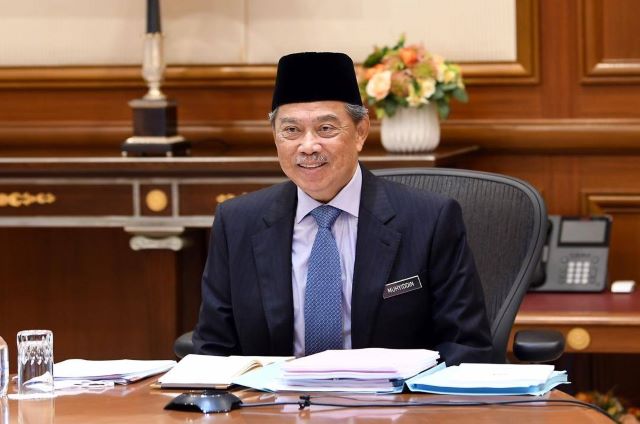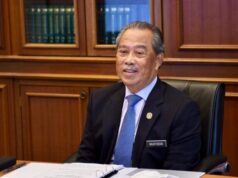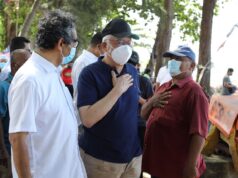 PUTRAJAYA — Following are the highlights of the National Economic Recovery Plan (PENJANA) unveiled by Prime Minister Tan Sri Muhyiddin Yasin on Friday (5 June).
PUTRAJAYA — Following are the highlights of the National Economic Recovery Plan (PENJANA) unveiled by Prime Minister Tan Sri Muhyiddin Yasin on Friday (5 June).
- Themed “Building the Economy Together”, the short-term plan aimed at strengthening the country’s economy which has also been affected by the global COVID-19 pandemic since early this year.
- Three main thrusts of PENJANA are Empower People, Propel Businesses, and Stimulate the Economy.
- PENJANA features 40 key initiatives worth RM35 billion to boost sustainable economic recovery, RM10 billion of which is a fiscal injection from the government.
- An allocation of almost RM9 billion will be channelled through various initiatives to tackle the rising rate of unemployment and to ensure job sustainability, which is expected to benefit three million workforces in the country.
- RM2 billion for an upskilling programme to assist those unemployed and youths, to benefit more than 200,000 people.
- Training allowance of RM4,000 per individual will be extended to those retrenched but not covered under the Employment Insurance Scheme.
- Incentives for employers who provide apprenticeships for school leaves and graduates at RM600 per month to tackle the issue of youth unemployment.
- RM75 million to promote the gig economy and provide a social safety net system for the employees.
- RM25 million to MDEC for the Global Online Workforce (GLOW) programme to train Malaysians to earn income from serving international clients while working online from home.
- Government to give grants to operators of children’s nurseries to ensure compliance with stipulated SOP.
- My30 programme to be introduced which will cost only RM30 for each user to enjoy unlimited monthly travel pass on all services provided by Prasarana in the Klang Valley from mid-June to end of December this year.
- 300,000 disabled people (OKU), single mothers registered with Welfare Dept eligible to receive a one-off payment of RM300 each before Aidiladha.
- To encourage the use of digital services among micro-enterprises and SMEs, the government and private sector will provide financing through matching grants worth RM140 million.
- RM1 billion tourism financing scheme to assist the tourism sector to remain viable and competitive in the new normal.
- RM400 million for PENJANA microfinancing programme with the cooperation from Bank Simpanan Nasional and TEKUN Nasional, RM50 million of which earmarked for women entrepreneurs.
- RM300 million working capital loans to assist affected Bumiputera entrepreneurs including training colleges.
- Various tax incentives for operational expenses in the new normal such as the cost of PPE and COVID-19 screening for operators of companies.
- RM100 million for the National Technology and Innovation Sandbox to encourage innovation and creativity that can propel the digitalisation of service delivery.
- The government will credit RM50 worth of e-wallet credits into consumers’ e-wallets to encourage e-wallet usage for safe, contact-free payment experience through the ePENJANA programme worth RM750 million which will benefit 15 million Malaysians.
- Stamp duty exemption on the instruments of transfer and loan agreement for the purchase of residential homes priced between RM300,000 to RM2.5 million subject to at least 10% discounts provided by the developer.
- The government is giving 100 per cent tax exemption on sales of locally assembled passenger cars, 50 pct for imported passenger cars from June 15 to Dec 31, 2020, to boost the automotive industry.
- Extended operating hours for the Urban Transformation Centres (UTC) to maximise productive capacity while maintaining SOPs & new normal workplace best practices.
- Tourism tax exemption from July 1, 2020, to June 30, 2021, to reactivate tourism activities.
- RM225 million to support and revive the creative industry through programmes and cooperation from MyCreative Ventures, MDEC and the private sector.
- Microcredit financing for agropreneurs (including commodity players) totalling of RM350 million.
- COVID-19 (Temporary Measures) Bill to be formulated and tabled during the July session of Parliament.
- The government to issue an Islamic debt instrument, the Sukuk PRIHATIN, worth RM500 million in the third quarter of this year and the proceeds will be utilised for specific development programmes such as connectivity of schools (especially in rural areas), funding for micro-enterprises (focused on women entrepreneurs) and research grants for infectious diseases.
— BERNAMA









